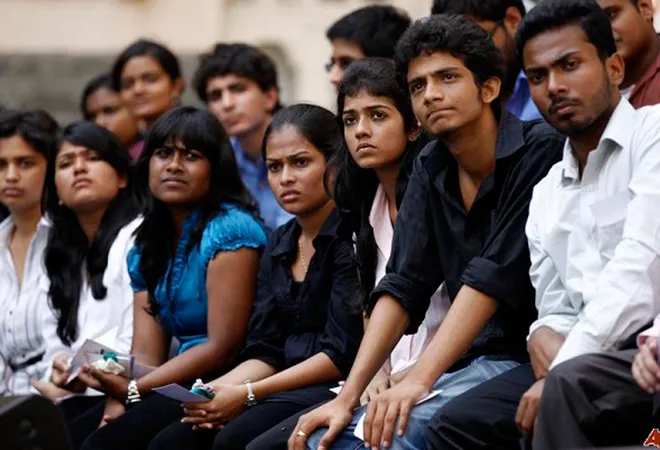
Foreign policy issues were perceived to be largely distant from public opinion for a long time. In the recent past, research on public opinion regarding various dimensions of foreign policy and international politics have gained momentum. Increasing public awareness on foreign policy issues and greater appreciation of the intersection between domestic and international politics have further facilitated the need for such research. The gradual and steady advancement of the political consciousness of the Indian citizenry, as a vibrant democracy and India’s increasingly significant role as an important player in international politics mandates a comprehensive investigation into the nature of India’s public opinion on the foreign policy. In this context, the recently published work, “The ORF Foreign Policy Survey 2021: Young India and the World” is an important contribution, especially at a time when the COVID-19 pandemic has tremendously aggravated the insecurities and volatility of the international order.
The survey categorically focuses on the opinion of Indian urban youth (18-35 years) regarding India’s foreign policy as they are the “most important stakeholders of India’s future”. The poll was done with a significant sample size of 2,037 Indian from across 14 cities, despite the logistical challenges posed by the ongoing pandemic. The findings of the survey reveal three crucial trends regarding the urban youth’s perception of foreign policy issues—increased awareness and optimism regarding India’s diplomatic engagement with the world, changing perception regarding threats and challenges in India’s foreign policy, and prioritisation of a pragmatic approach in foreign policy decisions.
Greater public awareness and optimism
The study shows that Indian youth have an impressive level of awareness regarding major issues on India’s foreign policy engagements. This trend indicates a departure from the long-held assumption of common citizens’ largely limited exposure to issues related to foreign policy. As the survey reveals, the youth is not only aware of the foreign policy decisions of the current government but is also supportive of those policies. Major foreign policy decisions of the Modi government like banning of Chinese Apps, strengthening the QUAD, the Balakot air strike, and controlling illegal immigration were viewed positively by the respondents. Only India’s withdrawal from RCEP is palpably viewed as the least preferred decision in the survey. Indian youth’s overall optimistic view of its immediate neighbouring countries (except Pakistan), despite some issue-based regional variations, is assuring for greater regional interaction.
Changing threat perception
The survey indicates that majority of respondents have identified the global pandemic as the greatest foreign policy challenge for India revealing how the political and economic challenges of COVID-19 dominates the threat perception of India’s youth. Also, the thrust on terrorism explains the youth’s growing concern regarding national security and its preference towards a strong approach can be understood by its appreciation of measures like surgical strikes and steps for controlling illegal immigration. Apart from traditional security threats, growing concern for issues like cyber security and climate change amongst the young population suggests greater awareness regarding these unconventional but increasingly crucial challenges which India can combat with greater international cooperation. Importantly, the youth’s growing apprehension regarding threats to India from a rising China with its ascendant economic and military power makes border disputes with China to be seen as a greater challenge than Pakistan. China’s approach towards COVID-19 and the recent border dispute with India in eastern Ladakh seemed to have considerably increased Indian youth’s distrust towards China as ORF’s earlier study done in 2015 on India’s northeastern states’ public perception (survey done in three select states) on China indicated lesser apprehension towards China at that time.
China’s approach towards COVID-19 and the recent border dispute with India in eastern Ladakh seemed to have considerably increased Indian youth’s distrust towards China as ORF’s earlier study done in 2015 on India’s northeastern states’ public perception (survey done in three select states) on China indicated lesser apprehension towards China at that time
Pragmatic approach
The study shows that the youth are keen on seeing India pursue its foreign policy ambitions in a pragmatic manner rather than sticking to the traditional approach of the past. The respondents’ great enthusiasm towards fostering greater ties with the US is in line with India’s stronger strategic relations with the US in the recent decades. But also, the youth have indicated in the survey that they would prefer India to explicitly take the US’s side in a the case of an escalation in the US–China conflict, keeping in mind India’s interests in light of the growing threat from China. Such pragmatic thinking seems to look beyond India’s traditional stance of remaining largely non-aligned during great power rivalries as seen in history. Rather, a major section of the respondents in the survey were found to be unaware of the Non-Aligned Movement (NAM). The youth’s much higher preference for the US over Russia despite India’s strong historical ties with Russia indicates the optimism towards the evolving India–US relations.
An extremely high preference is given to India’s bid for permanent membership at the United Nations Security Council as well as for strengthening India’s economic prowess, revealing the young population’s desire for India to play a greater role in the realm of international politics and economy. Though globalisation overall—and also with regard to educational opportunities—is viewed more positively, youth remain skeptical about its impact on the economy, culture, standard of living, and people’s movement and a majority supported self-reliant economic growth for India.
An extremely high preference is given to India’s bid for permanent membership at the United Nations Security Council as well as for strengthening India’s economic prowess, revealing the young population’s desire for India to play a greater role in the realm of international politics and economy. Though globalisation overall—and also with regard to educational opportunities—is viewed more positively, youth remain skeptical about its impact on the economy, culture, standard of living, and people’s movement and a majority supported self-reliant economic growth for India.
The study also revealed certain dichotomies often embedded in understanding the multiple complex layers of public opinion. Though there has been high preference for India’s multilateral engagement with other countries, awareness regarding important and newer international and regional organisations, barring the United Nations and the World Trade Organisation, were limited. Youth’s knowledge regarding organisations like G-20, BRICS, SCO, SAARC and BIMSTEC, which are potentially crucial platforms for multilateral engagements, was found to be relatively low. Similarly, though respondents were hopeful about India’s engagement with its neighbourhood (except Pakistan), their understanding of the “ebbs and flows of India’s engagement with neighbours” was also found to be inadequate. Hence, it is crucial to further investigate to what extent the youth are forming informed opinion based on adequate understanding of such issues. It will also be interesting to know to what extent conventional media and social media shapes such opinion of the young population on foreign policy. As the survey was done amidst the pandemic, similar survey after a few years when the looming threat of the coronavirus subsides, would help to understand how much the COVID-19-induced contingencies have impacted the views of the respondents. Also, youth’s perception on other issue-specific concerns like India’s international transboundary disputes and global development cooperation initiatives will be important to study.
Such attempts to continue assessing the evolving nature of India’s public opinion on foreign policy would undoubtedly enhance the understanding on the interaction between foreign policy and public opinion in a democracy.
This article is based on the findings of the ‘ORF Foreign Policy Survey 2021: Young India and The World‘
The views expressed above belong to the author(s). ORF research and analyses now available on Telegram! Click here to access our curated content — blogs, longforms and interviews.




 PREV
PREV


